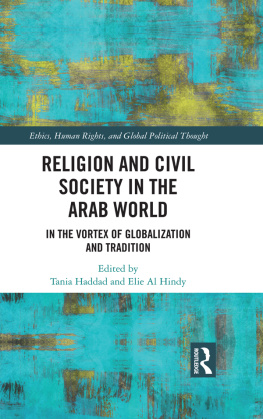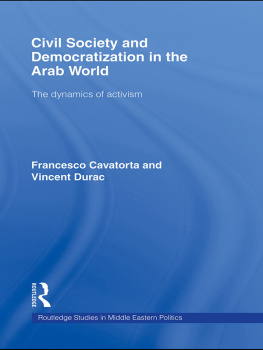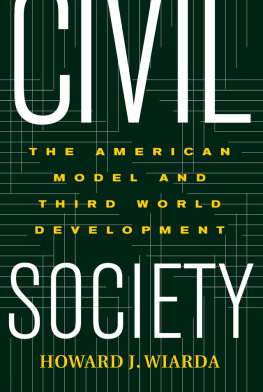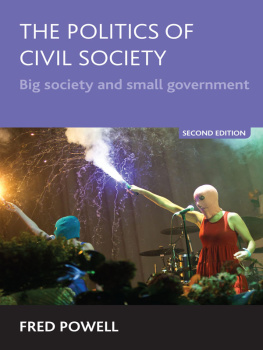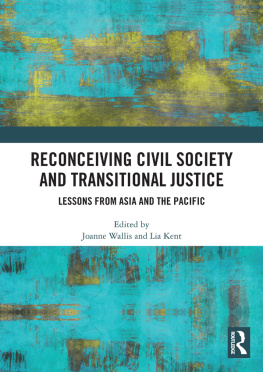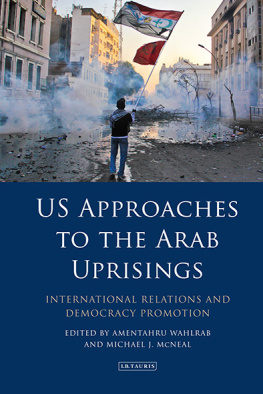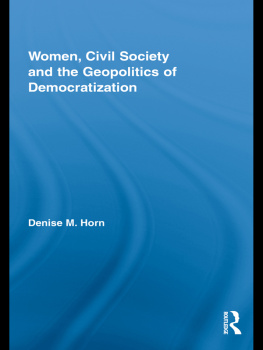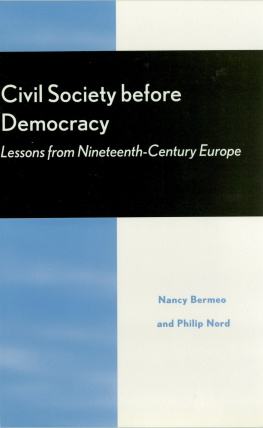Religion and Civil Society in the Arab World
This book examines the links between civil society, religion and politics in the Middle East and North Africa region. The chapters in the volume explore the role of religion in shaping and changing the public sphere in regions that are developing and/or in conflict. They also discuss how these relations are reflected on civil society organizations and the role they are expected to play in transitional periods.
This volume:
- investigates the conceptual dilemmas regarding what is civil society in the Arab world today
- examines the dynamic roles of civil society organizations and religion in the Middle East and North Africa
- explores the future of the Arab civil society post-Arab Spring events, and how the latter continues to reshape the demand for democracy in the region.
A comprehensive study of how the Arab civil society has come into being and its changing roles, this eclectic work will be of interest to scholars and researchers of politics, especially political Islam, international relations, Middle East Studies, African Studies, sociology and social anthropology.
Tania Haddad is Assistant Professor for Public Administration at the Department of Political Studies and Public Administration, American University of Beirut, Lebanon, since 2013. Her teaching expertise includes civil society, public and nonprofit management, program evaluation and research methods. Her research interests currently focus on issues related to civil society and nonprofit management in Lebanon and the Middle East.
Elie Al Hindy is Associate Professor in the Faculty of Law and Political Science at Notre Dame University, Louaize, Lebanon, since 2009. He has served previously as Chairperson of the department of Government and International Relations (20112015), President of the Board of ALEF act for human rights (20122017) and as Director of the Middle East Institute for Research and Strategic Studies (since 2014).
ETHICS, HUMAN RIGHTS, AND GLOBAL POLITICAL THOUGHT
Series Editors: Sebastiano Maffettone and Aakash Singh Rathore
Center for Ethics & Global Politics, Luiss University, Rome
Whereas the interrelation of ethics and political thought has been recognized since the dawn of political reflection, over the last sixty years roughly since the United Nations Universal Declaration of Human Rights we have witnessed a particularly turbulent process of globalizing the coverage and application of that interrelation. At the very instant the decolonized globe consolidated the universality of the sovereign nation-state, that sovereignty and the political thought that grounded it was eroded and outstripped, not as in eras past, by imperial conquest and instruments of war, but rather by instruments of peace (charters, declarations, treaties, conventions), and instruments of commerce and communication (multinational enterprises, international media, global aviation and transport, internet technologies).
Has political theory kept apace with global political realities? Can ethical reflection illuminate the murky challenges of real global politics?
This Routledge book series Ethics, Human Rights and Global Political Thought addresses these crucial questions by bringing together outstanding monographs and anthologies that deal with the intersection of normative theorizing and political realities with a global focus. Treating diverse topics by means of interdisciplinary techniques including philosophy, political theory, international relations and human rights theories, and global and postcolonial studies the books in the Series present up-to-date research that is accessible, practical, yet scholarly.
Also in the series
RELIGION AND CIVIL SOCIETY IN THE ARAB WORLD
In the Vortex of Globalization and Tradition
Edited by Tania Haddad and Elie Al Hindy
For more information about this series, please visit: www.routledge.com/Ethics-Human-Rights-and-Global-Political-Thought/book-series/EHRGPT

